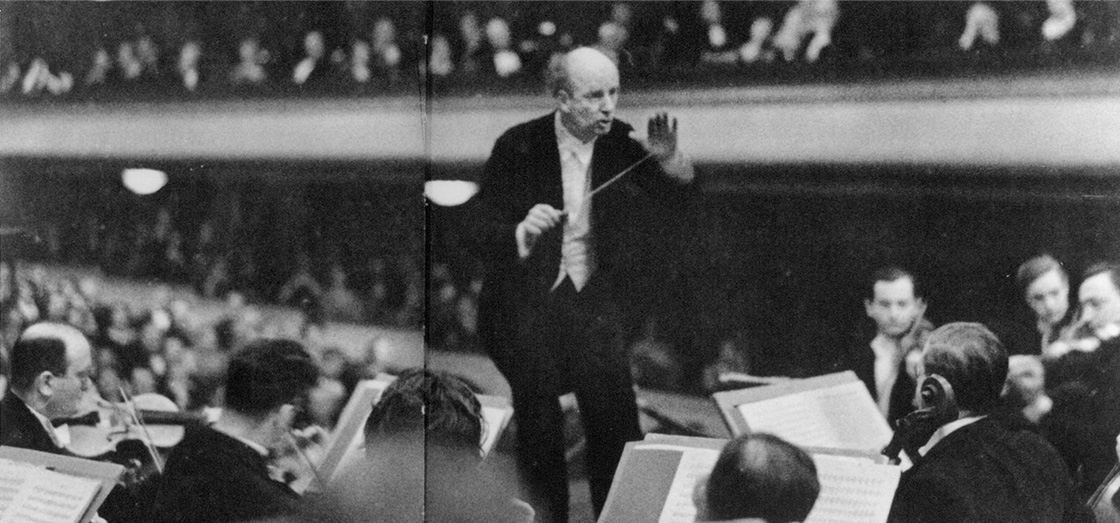
T
he life of Szymon Goldberg was a series of curious turns, echoing history as it takes its own tumultuous steps. Poland, Goldberg's homeland, simultaneously underwent repeated violation and rewriting of its own geographic and political location in Europe.
W
orld War I was triggered by an unexpected incident, as Europe's five great powers (Germany, The Austro-Hungarian Empire, Russia, France and England) were slowly losing their political balance in the second half of 19th century. Goldberg, who was only five years old at this time, was visiting Carlsbad where his mother was taking a rest for her health. On their way back to Poland they encountered thousands of troops, an experience which remained in his memory as though to hint at the difficult path that was awaiting him.
Ahead lay the fall of the Habsburg Empire, great dynasties which had ruled Europe for over a hundred years, and the defeat of the Imperial German Army. The rise of nationalism amongst shattered nations, and their struggle to rebuild their countries. The 1930s saw the Great Depression, and rising Anti-Semitism. Germany became the victim of Hitler's ambition, only 15 years after the destruction caused by World War I. Despite all of this, the cultural scene of Berlin in the 1920s was full of vitality, more vigorous than any other city in Europe. To mention just a few examples, all three of its opera houses were bustling, and new plays of avant-garde writer Bertolt Brecht were performed twice every night (8:00 p.m. to 10:00 p.m., and 11:00 p.m. to 1:00 a.m.)
G
oldberg spent his adolescence and early adulthood, in the surroundings of Berlin. In the musical world there were exciting artists such as Richard Strauss, Furtwängler, Landowska, Schnabel, Kreisler, and particularly important to Goldberg, Flesch who was regarded as the finest violin pedagogue of his generation. These artists were all in their prime of their musical careers. Under the mentorship of Flesch, who disliked the idea of labelling students as prodigies or geniuses, Szymon Goldberg was able to develop a solid foundation and a "assurance for the future" in eight years. The teachings of Flesch, which contributed in firmly securing the innate talents of Goldberg, was not only about polishing the fine techniques of violin playing, but of gaining a deeper understanding of classical style and all-round knowledge, in order to obtain the quintessence of music. Goldberg later recalled "When I was around 25, the most energetic and important years for a man to develop, I spent most of my time waiting for a new visa at embassies in different countries. What made it possible for me to keep polishing my abilities, in the little practice time I could find, was the basic training which had been passed on to me by Flesch.”
In 1925, at the age of 16, one year after his debut in Berlin, Szymon Goldberg, was promoted to Concertmaster at the historic Dresden Philharmonic under Erich Kleiber. The arts world was surprised by the news of the youngest Concertmaster ever to be appointed. There is a letter, which has been passed on to me, addressed to Goldberg written by Max Brod (a friend of Franz Kafka's) congratulating him on the occasion of this appointment.
F
our years later, invited by Furtwängler, Goldberg joined the Berlin Philharmonic as a Concertmaster, at the age of 19. He is recorded to have been the youngest ever, and widely regarded as the finest ever, Concertmaster of its history.
Furtwängler said: "Szymon Goldberg is a necessity for the Berlin Philharmonic, in order to preserve the orthodoxy of German music", and he gave Goldberg the unusual privilege of serving as the Concertmaster only under the baton of the principal conductor - Furtwängler himself. There are countless stories of the two musicians and the Berlin Philharmonic flourishing in this golden period, until the dark days of Hitler and the Nazis. After only four years of serving at the Berlin Philharmonic, Goldberg, faced with imminent danger, was forced to leave Germany. In a letter sent by Furtwängler to Flesch, Furtwängler wrote "In order for me to continue my work, to protect the history of our graceful German music which is now under threat, Goldberg was indispensable. I understand the reasons why he had to leave the Philharmonic and Germany, but I can not hide feelings that he had deserted me and my work."
G
oldberg had won the total trust of the greatest conductors of this era, Kleiber and Furtwängler, when he was only 20 years of age. As the world rapidly headed towards World War II and more and more people fled Germany before the Holocaust, one of the truly ironic consequences of this exodus was that Germany lost two important and reliable interpreters of the orthodox German musical tradition; the Hungarian Carl Flesch, and the Polish Szymon Goldberg.
